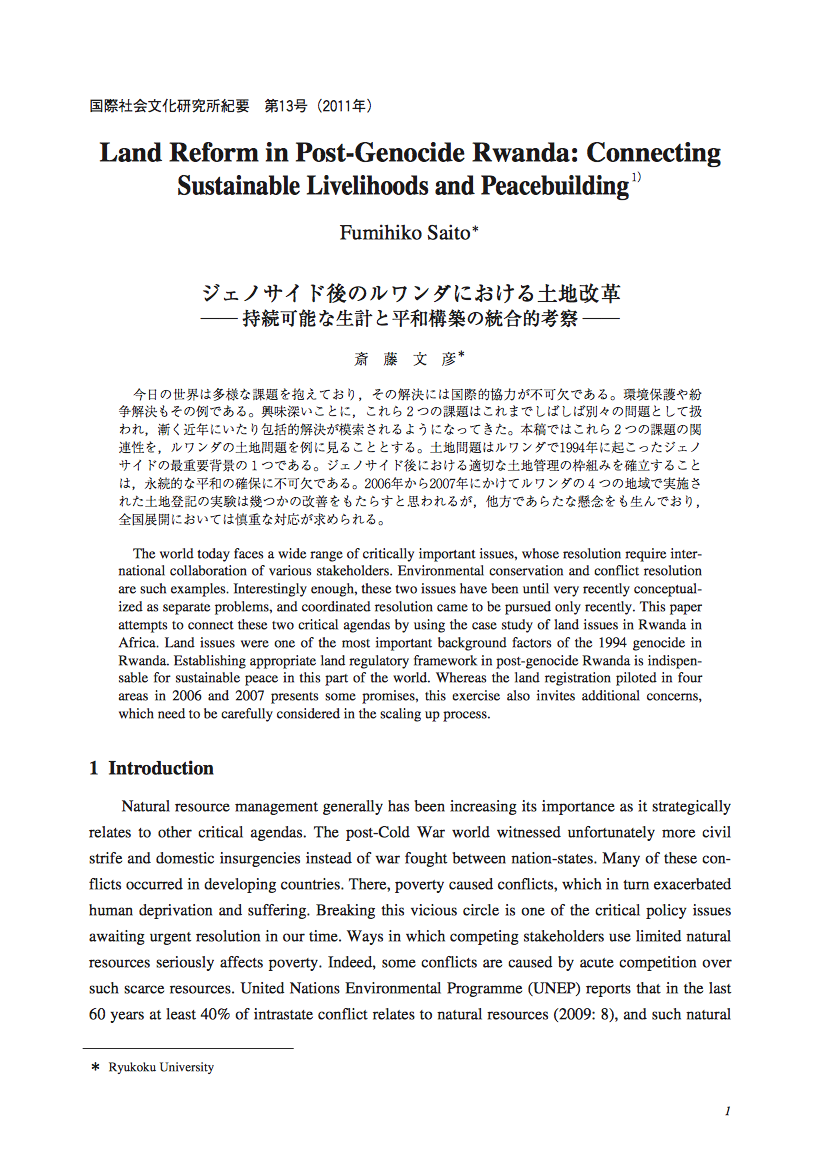The world today faces a wide range of critically important issues, whose resolution require inter- national collaboration of various stakeholders. Environmental conservation and conflict resolution are such examples. Interestingly enough, these two issues have been until very recently conceptual- ized as separate problems, and coordinated resolution came to be pursued only recently. This paper attempts to connect these two critical agendas by using the case study of land issues in Rwanda in Africa. Land issues were one of the most important background factors of the 1994 genocide in Rwanda. Establishing appropriate land regulatory framework in post-genocide Rwanda is indispen- sable for sustainable peace in this part of the world. Whereas the land registration piloted in four areas in 2006 and 2007 presents some promises, this exercise also invites additional concerns, which need to be carefully considered in the scaling up process.
Land Reform in Post-Genocide Rwanda: Connecting Sustainable Livelihoods and Peace building

